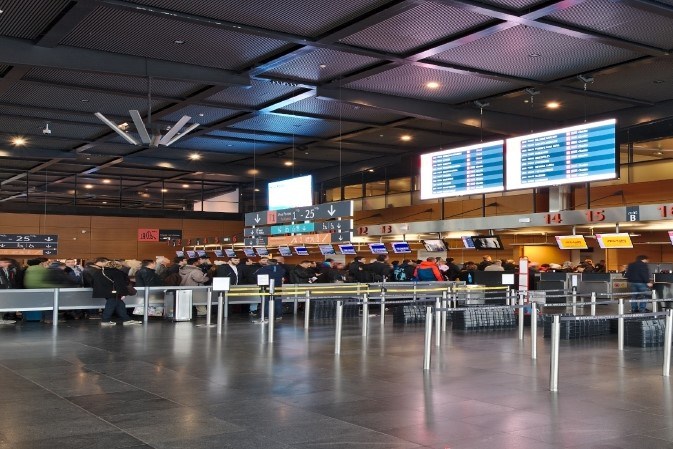Yesterday the government announced a ban on all non-essential travel, in an effort to stop the spread of the coronavirus, and in particular its so-called British variant B-117.
According to new research, however, it was travellers returning to Belgium after the Christmas holiday that brought B-117 into the country. The thing that caused the second wave of the epidemic in Belgium – people returning from holiday at Easter – happened again at Christmas, albeit to a lesser extent.
The research takes the form of genome analysis of the virus samples found in patients in Belgium.
Scientific researchers from across the world use the internet platform Nextstrain to upload genome sequences of the virus SARS-CoV-2, and a study of those sequences has shown at least 20 samples uploaded from Belgian laboratories that show the B-117 variant turning up in Belgian samples during the period of Christmas vacation or shortly after.
The samples differ slightly one from another, but each can be identified as B-117.
Emma Hodcroft, a researcher for Nextstrain, has pointed out the development in technical terms on Twitter. Here in Belgium, the Riga Institute in Leuven also analyses genome sequences, and virology professor Peter Maes confirms, Hodcroft’s conclusions: a significant number of sequences of the B-117 variant were introduced into Belgium around the time of the Christmas holiday.
“It looks like the spring break of 2020 all over again, with introductions from travel that seed clusters across the country,” Prof. Maes said. “As if we haven't learned anything from our mistakes last year.”
Not all infections with B-117 are by returning travellers, however.
“We are also seeing many infections with the British variant that are not related to travel,” Maes said.
“That indicates local distribution. There are introductions from abroad by people who have not had themselves tested after their return and who have not complied with the measures. Those introductions only come to the surface through tests of people with no travel history, if there are already local infections.”
In short, a person infected with the B-117 has either been abroad, or was infected by someone who was abroad.
Meanwhile new research by the British advisory group SAGE has suggested that B-117 is not only more contagious than the standard virus, but may also be more deadly. And the numbers of cases detected in Belgium are rising, from 5% of samples last week to 17% this week.
Alan Hope
The Brussels Times

